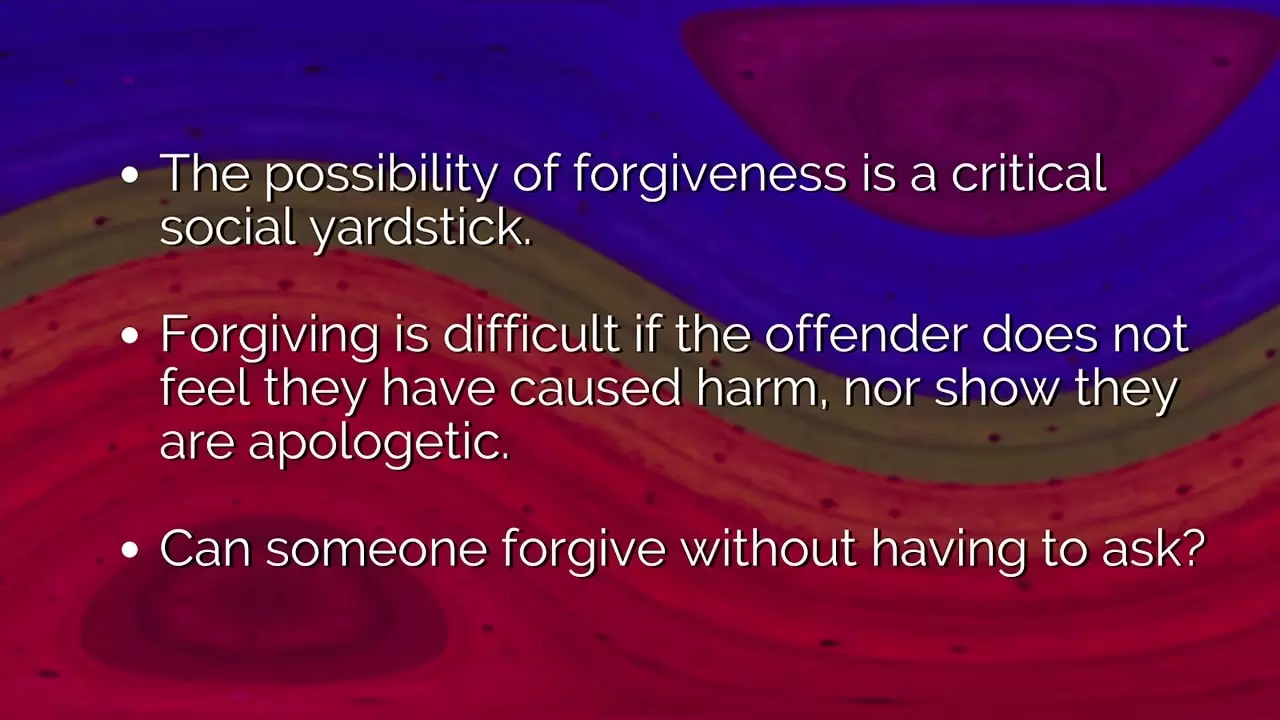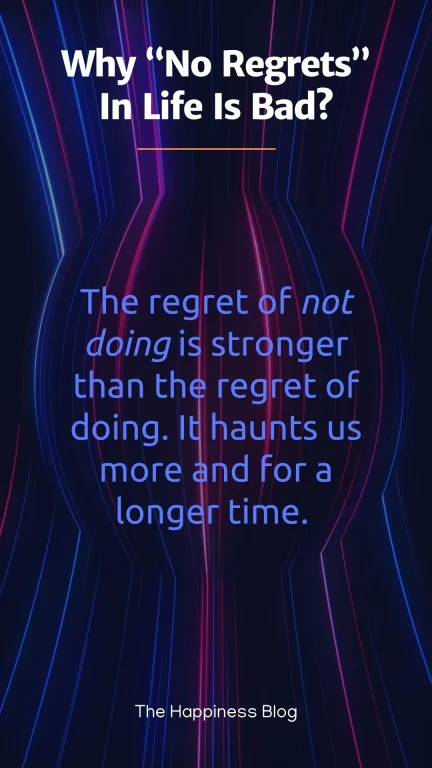Today's Saturday • 15 mins read
— By Dr. Sandip Roy.
Only 1% of people in the World Regret Survey said they never feel regret.
Perhaps these “no regrets” people are emotionally avoidant, self-deceptive, or unwilling to reflect on past mistakes. A life with no regrets often signals that nothing was questioned deeply enough.
“If you never pine for a different past, you’ll stay trapped in a cycle of mistakes.” — Arthur C. Brooks
Professor Todd Kashdan says, “If you live with zero regrets, my guess is, you have …”:
- not attempted to explore (life) sufficiently
- not given voice to what (rightfully) bothers you sufficiently
- not toyed with showing different sides of yourself sufficiently
- not tested out relationships, classes, books, foods, and travel sufficiently
Regrets are signs that we have reflected, learned, and recognized moments where we could have acted with greater care, courage, or clarity.
The Nature of Regrets
Regrets are feelings of disappointment when we realize we did something wrong or unwise. A regret includes guilt, stress, sadness, overthinking, and self-blame.
- Regrets have a common theme: the past.
- Regrets are universal, but not all regrets are regrettable.
- Regrets feel bad because they imply a fault in personal action.
- Regret is a natural emotion; it shows us our wrong decisions and helps us not to repeat the same mistakes.
Regret is a complex work of our mind:
We go into our past, judge that a decision or action was wrong, then imagine a correct version of it, and compare both versions. Then we feel bad. Because we think our present could have been better if we had made a different choice.
Most regrets arise from comparing a bad outcome with an imaginary good outcome. All regrets whisper to us the same thing: “You should have done it differently.”
But it’s always based on a look back, and no one can go back and rewrite history.
Regrets happen because mistakes happen. They’re reminders that we can’t always make correct decisions.
We regret in one of two ways:
- Regret of Inaction: things we could have done, but we did not
- Regret of Action: things we should not have done, but we did them
We feel more intense regret for actions not taken (inaction) than for actions taken (action).
- Like a good teacher, it teaches us to do better next time.
- Like a lighthouse, it shows us the scraggy rocks of our past mistakes.
What Are Our Biggest Regrets?
When looking across life as a whole, what do people regret most?
Education, career, romance, parenting, self, and leisure seem to provoke the most regret in us (Newall, Chipperfield, Daniels, Hladkyj, & Perry, 2009; Roese & Summerville, 2005).
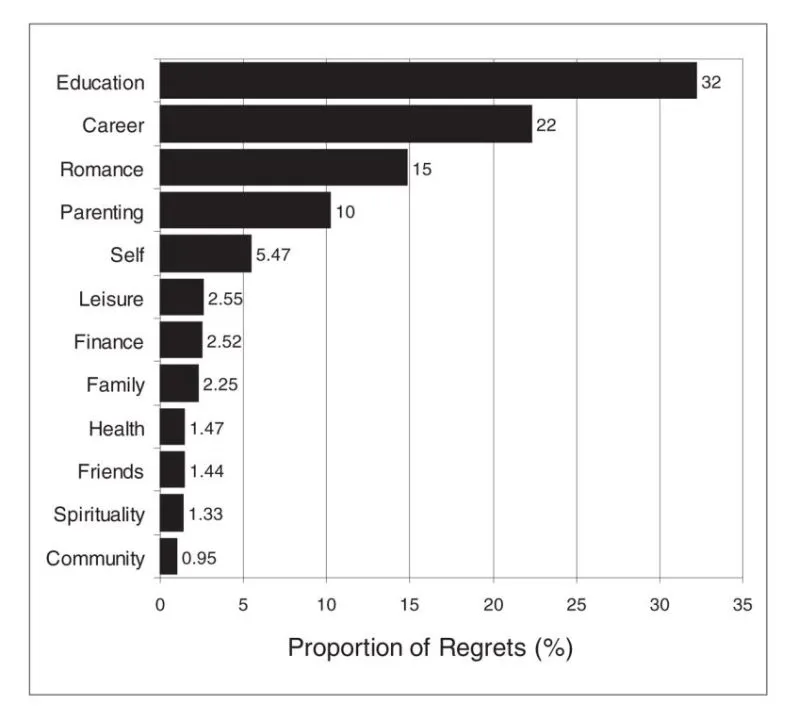
Bronnie Ware, an Australian nurse who spent several years caring for patients in their final three months, found their top 5 regrets at final moments were:
- I wish I’d had the courage to live a life true to myself, not the life others expected of me.
- I wish I hadn’t worked so much.
- I wish I’d had the courage to express my feelings.
- I wish I had stayed in touch with my friends.
- I wish I had let myself be happier.
Daniel Pink, the bestselling science writer, says we have four core regrets:
- Foundation Regrets: the regrets for our ‘favorite’ mistakes that we always try to justify.
- Boldness Regrets: the failure of not having had the courage to do something and be happier.
- Moral Regrets: the regret of having failed at being moral, such as being deceitful or unfaithful.
- Connection Regrets: the regret of not having or not patching up our meaningful relationships.
These four core regrets function as a ‘photographic negative’ for a good life.
Psychology of Regretful Behavior
Psychologists have extensively studied regret, and they have found quite a few interesting things about it.
- Regret is a common emotion (Shimanoff, 1984; Landman, 1987).
- Regrets occur frequently when the outcome of a decision is worse than the probable outcome of a discarded alternative (Zeelenberg, 1999).
- Regret is a counterfactual emotion resulting from a comparison between what is and what might have been (Bell, 1982; Loomes & Sugden, 1982).
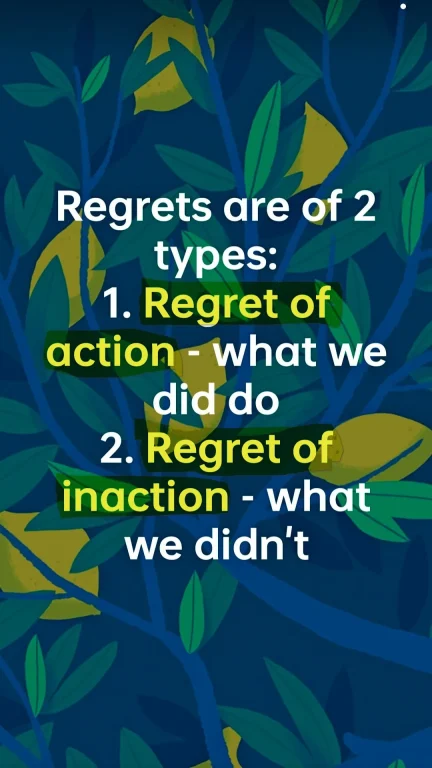
Research suggests, across cultures and populations, regret about lack of action haunts more people for longer lengths of time.
- For example, if we take no action to prevent further losses after suffering a negative outcome, our regret will be intense if these losses occur (“Why didn’t I do anything?”).
- If, on the other hand, we take steps to avert further losses but fail, the regret will be less intense (“At least I tried!”).
Regretful behavior is a result of regretful thoughts related to past actions. Sugden, in 1985, suggested that regret that stems from self-recrimination or self-blame is most obvious when one’s decision was irrational, inexplicable, or indefensible.
Psychologists believe regrets are not only natural but also vital for human development because they teach people how to avoid future erroneous behavior.
Regret is an indication of our moral growth and can help us change our ways in the future. Regrets are inevitable, as we cannot avoid mistakes, since every decision has some risks and will have some kind of unacceptable outcome.
Regrets are a sign that someone is trying to do better and be better. They help us learn from our mistakes, remember things we enjoyed, and motivate us to do more.
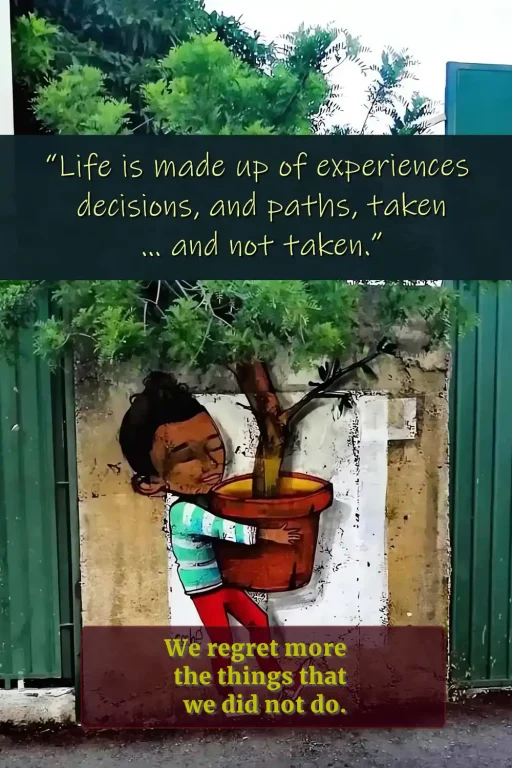
Theories of Regret
- The Temporal Theory of Regret (Gilovich and Medvec, 1995) is one of the most well-known regret theories. It suggests that changes in regret intensity over the lifespan are driven by the nature of the regrettable decision itself. It suggests that “actions produce greater regret in the short-term, whereas inactions (failures to act) generate more regret in the long run.”
- The Decision-Justification Theory of Regret (Connolly and Zeelenberg, 2002) says the underlying decision logic is critical for any regret. It says we feel a regret to be more intense when the result of our decision is comparably worse.
- The Belonging Theory of Regret (Morrison et al., 2012) explains that the context of the regretting decision is fundamental in generating regret intensity. It says a person feels more regret when they realize their poor decision has caused an outcome that threatens their sense of social belonging. The “belonging” theory finds support in a recent study titled What Makes for the Most Intense Regrets?
Why Do We Have Regrets?
- Guilt: Regret may happen because of a feeling of guilt. We may feel guilty when we believe our actions have harmed us or others, and concluding that our lives would be better had we made different choices.
- Judgment of the Past: Regret happens when we judge past actions through the lens of our current circumstances. Forgetting that the situations in the past were different, and what we did may have been the best we could have done then.
- Missed Opportunities: Regret may stem from a sense of sadness over the opportunities we missed—the right actions we failed to take. Research suggests that we tend to regret inaction more than action, as we believe that our unmade choices could have led to positive outcomes.
- Fear of Consequences: Regret can arise from a fear of the consequences of our actions or inactions. When we anticipate negative outcomes from our choices, we may later regret those decisions if they lead to undesirable results. This fear can create a heightened sense of anxiety about future choices, making us more prone to regret.
- Comparison with Others: We often feel regret when we compare our lives to those of others. Seeing the successes or happiness of peers can lead us to question our own choices and paths, resulting in feelings of regret for not pursuing different opportunities or for taking a different direction in life.
- Unmet Expectations: Regret can stem from unmet expectations — whether self-imposed or society-influenced. When we fail to achieve our goals or aspirations, we may regret not living up to our ideals or potentials, or not taking the necessary steps. This can lead to a sense of disappointment and longing for what could have been.
- Counterfactual Thinking: Humans tend to mentally simulate a desirable alternative past, sometimes in a way that is opposite to what actually happened. We love to imagine how things could have been different, even when we know we can’t change the past. It breeds regrets. Daniel Pink says, “Two decades of research on counterfactual thinking exposes an oddity: thoughts about the past that make us feel better are relatively rare, while thoughts that make us feel worse are exceedingly common.”
- Need For Social Bonds: Regret serves a vital emotional function by reminding us to strengthen our social bonds. For our ancestors, the ability to feel regret was critical for survival. It inspired them to cooperate and be accountable, fostering a sense of community necessary to overcome primitive life’s challenges.
Regrets are hardwired into our brains. They help us survive and thrive as a community, fulfilling our obligation to do what’s good for society. As the Roman Emperor Marcus Aurelius said:
“That which is not good for the bee-hive cannot be good for the bees.”
How Regrets Impact Our Behaviors?
- Emotional Resilience: Over time, learning to cope with regret can boost our emotional resilience. Those who learn from their regrets get better at handling future challenges, becoming more adaptable to life’s uncertainties.
- Motivation for Change: Regret can serve as a powerful change motivator. Regretting past mistakes can inspire us to change our behaviors and make better choices, driving personal growth and development.
- Risk Aversion: Regret can make risk-loving people become risk-averse. Facing negative outcomes from previous choices can make people hesitant to take similar risks, opting instead for safer, more conservative options to avoid potential regret.
- Increased Reflection: Regret often prompts self-reflection. When we analyze our past decisions and the associated emotions, we develop greater self-awareness. This can help us understand our values and priorities, guiding future actions.
- Strengthened Relationships: Regret can lead us to make efforts to repair, maintain, and strengthen our relationships. When we feel regret over actions that may have harmed others, we are motivated to apologize, make amends, or improve our behavior, to foster healthier connections with those around us.
- Behavioral Adjustment: Present regrets urge us to avoid future regrets. Regret can drive behavioral adjustments, so we avoid similar mistakes in the future. We may develop new strategies or coping mechanisms to handle difficulties more effectively, reducing the likelihood of re-experiencing regret.
Why Is It Wrong To Live With “No Regrets?”
A “no regrets” approach in life can be dubious and self-defeating, as regretless people may be:
- highly rigid and opinionated that they do not need to change their ways
- over-cautious to live life without taking risks or trying new experiences
- perfectionists, setting unattainably high standards for everyone
- too uncaring to offer apology or make amends in relationships
- too narcissistic to accept that their actions have hurt others
Regret makes us human. A study by the University of Virginia and Yale found that people who feel they have no regrets are more likely to engage in behaviors like infidelity and risky promiscuous behavior, such as cheating on a partner.
The phrase “no regrets” is a common expression. It means that the person has no regrets about not doing something or not having done something.
The pop philosophy that we should live our lives without regrets, which has been around for quite some time now, is unhelpful and even ridiculous. It has recently regained popularity, as we hear celebrities declare they are proud of all their mistakes and have no regrets in their lives.
It is one thing, and a good thing, to accept and own up to one’s mistakes. After all, our mistakes help us learn how to live better. But it is plainly wrong to be proud of all your mistakes, especially those that caused harm to others.
Claiming to live a life of “No Regrets” also sends out the arrogant message that one does not need to change for the better.
Living without regrets is like telling others you don’t care about having hurt anyone in life with your mistakes. It says that you believe, in the end, people would accept and forgive you for repeating your mistakes. This mindset is wrong because it doesn’t allow you to learn from your mistakes and grow out of them.

Regret And Happiness
Regrets can lower our happiness levels and give us mental pain, but:
- this pain can be good when it propels us toward future goodness. Once you know how to handle your regret well enough, it can improve your overall life satisfaction.
- this pain can be bad when it gets overwhelming or paralyzing, leading to a cycle of negative thinking that keeps us stuck. Dwelling excessively on past mistakes can result in feelings of shame, anxiety, or depression. Regret can become powerful to affect our mental health and even lead to depression.
Regret can be a catalyst for positive change if we use it constructively while avoiding being trapped in a cycle of despair.
How To Repair/Cope With Your Regrets
Most psychologists hold that regret is a natural part of life, and we should not suppress or ignore our regrets.
Here are some healthy ways to handle regrets:
1. Accept your mistakes.
Emotions do not need avoidance, but acceptance. One of the most important things in dealing with regret is accepting the mistake behind it.
Accept your regrets and learn to live with the consequences of your actions. Do not define your life by the sum of your regrets. Your future life does not have to be ruined as a result of your past regrets.
Accepting them means you acknowledge that you have made a mistake and understand why you did what you did. It does not mean feeling sorry for yourself or dwelling on your past choices.
Accepting also means showing self-compassion in handling your regrets.
2. Confront your regret.
The second strategy is to face up to them with courage. Confront your reasons for your regret, and understand what you would do differently in the future to not commit those mistakes again.
Confronting your regrets means understanding what caused them so that you can learn from them, and can avoid making them again.
A helpful strategy to do this is to ground yourself in the present. Practicing mindfulness meditation can help pull you out of the past and observe your present without judgment.
You could use the present moment to reflect on what went wrong, what you could do to fix it, and how you may avoid making the same mistake again.
3. Change your behavior.
A third strategy is to use your regret as a fulcrum to change the direction of your future behavior. First, stop being someone who wants to control every aspect of their life—even their past.
You have no control over your past, so stop your “if only I had…” thoughts.
Second, convince yourself that no life can be lived without mistakes, and no good life can be lived without regrets. This can start your behavior change process: expecting less from events and people.
Change your attitude and behavior by abandoning expecting others to act the way you want, waiting for events to unfold the way you want, and trying to control things outside your control.
Remember, you have only little control over your future. There will always be instances or events that lie beyond your control. The Stoics knew this dichotomy of control quite well.
4. Learn from your regret.
Look at the advantages that came with your regret. For example:
- Take the motivation to learn more about yourself and change into a better person.
- Take the inspiration to seek forgiveness from people you have wronged.
- Take the ideas on how to be better prepared for similar major events in the future.
Regret motivates us to live a life well lived by reminding us that our time is limited. So grab those fleeting opportunities to educate yourself.
5. Don’t let regret consume you.
All regrets aren’t regrettable. The past decision was based on a different set of circumstances. We cannot judge it from the present set of circumstances. The result our alternate action would have brought might have still been negative or worse.
Of course, wallowing in regret is bad. Regrets, if allowed to fester, can have a seriously negative impact on your mood and make your life.
Don’t let your regret consume you. Self-regulate your emotional atmosphere. Suppress your emotions, if necessary, to keep your regretful feelings from overpowering other aspects of your life.
If you find it too much to get over on your own, see a psychological counselor or therapist.

Final Words
Is it bad to have no regrets?
Imagine you could choose a life without regrets. Every decision will turn out right. Any path you choose will bring you joy.
Would you choose this kind of regretless life?
Regret is universal, whether you admit it or not. Saying you have “no regrets” is either lying or taking the wrong route.
Regrets are proof that you are better than your mistakes.
The right way to handle a regret is to take the lesson and move on in life, not imagining a better version of a bad past.
√ Also Read: 10 Ways To Make A Narcissist Regret Losing You
√ Please spread the word if you found this helpful.
• Our Story!
» You deserve happiness! Choosing therapy could be your best decision.
...
• Disclosure: Buying via our links earns us a small commission.

